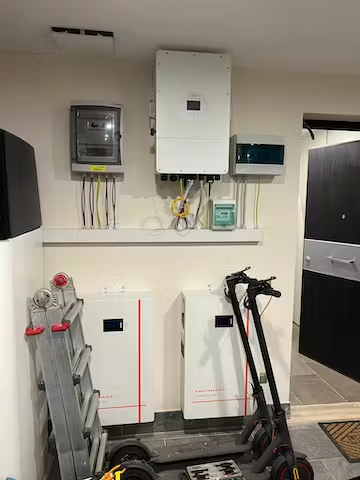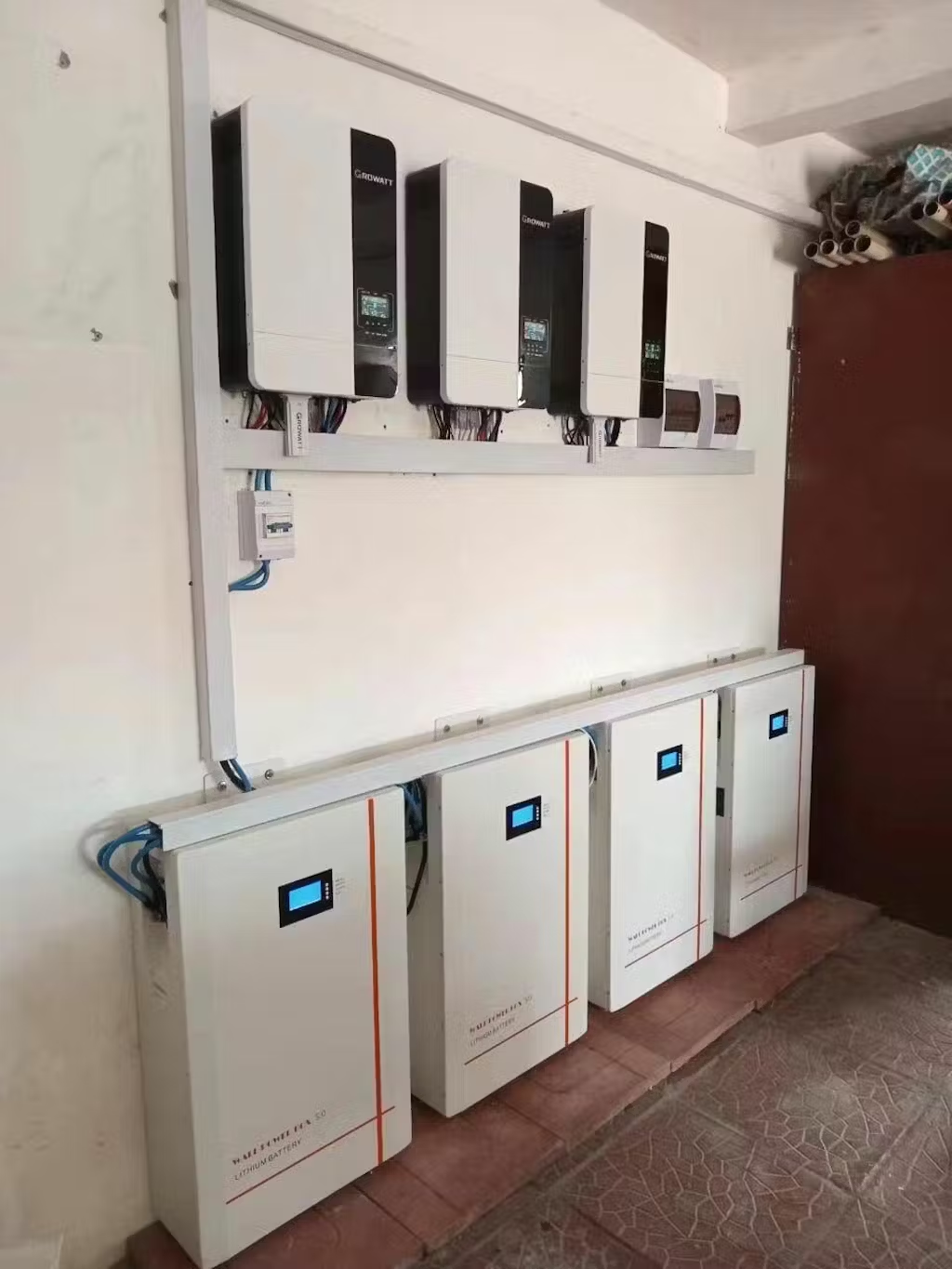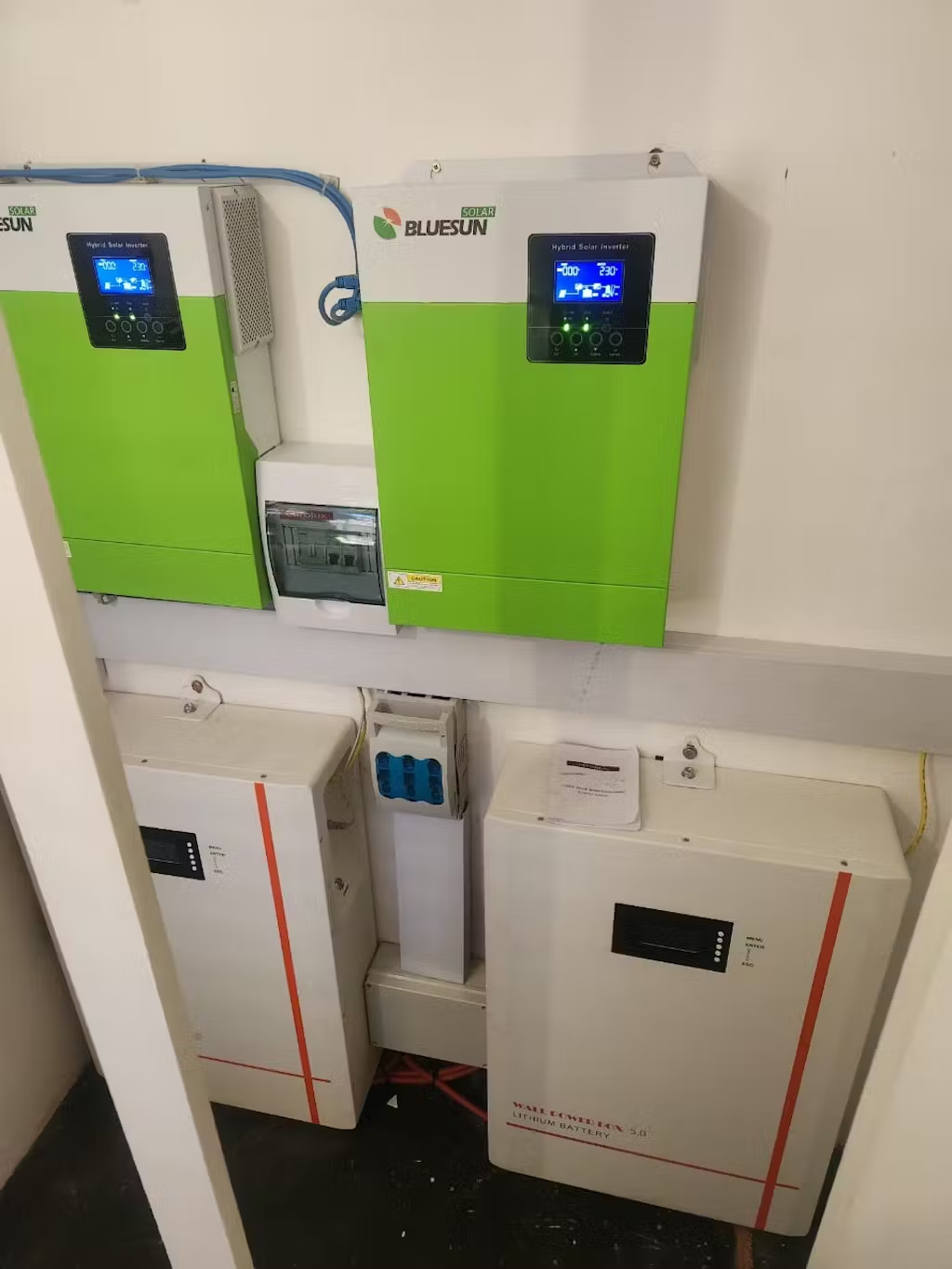Why Choose Diypow Lithium OFF-Grid Battery?
Diypow off-grid batteries offer fast charging and high discharge performance.
Compared with the traditional lead-acid batteries of the past, the charging time of our lithium batteries is greatly reduced by 88.7%. The charging speed of lead-acid batteries is only 0.1C, but Li-ion batteries can be charged up to 1C. Of course, we do not recommend charging too fast to extend the cycle life of Li-ion batteries. High discharge is the most outstanding advantage of drive motor. Our deep cycle marine lithium battery can provide high current discharge, which can start the motor and drive in a period of time. High discharge performance dictates that our lithium batteries can drive most loads.
Whether you are building your own solar power system or planning to power it independently in an off-grid environment, Diypow's lithium batteries are the ideal choice for you. Our lithium batteries are made of environmentally friendly materials with excellent energy density and long life, providing you with a long-lasting and reliable power supply. Diypow's lithium batteries undergo rigorous safety testing and quality control, with multiple protection measures to ensure stability and safety during use. A sustainable energy solution for you.
Diypow 12V 100AH Deep Cycle LiFePO4 Battery Pack | 1.28kWh & 1.28kW
Diypow 12V 120AH Drop-In SLA Replacement Deep Cycle LiFePO4 Battery Pack
Diypow 12V 200AH Deep Cycle LiFePO4 Battery Pack | 2.56kWh & 1.28kW
Diypow 12V 300AH Deep Cycle LiFePO4 Battery Pack | 3.84kWh & 3.84kW
Diypow 12V 400AH Deep Cycle LiFePO4 Battery Pack | 5.12KWh & 5.12kW
Diypow 36V 60AH Drop-In SLA Replacement Deep Cycle LiFePO4 Battery Pack
Diypow Best Lithium OFF-Grid Batteries
The off-grid solar system packages with batteries use solar panels to convert solar energy into electrical energy when light is available, and supply power to the load through the solar charge/discharge controller, while charging the battery.
On cloudy days or when there is no light, the battery bank supplies power to the DC load through the solar charge/discharge controller.
At the same time, the battery also supplies power directly to the stand-alone inverter, which inverts the AC power to the AC load.
An off-grid battery bank is composed of solar panels, solar inverters and batteries. If the output power is 220V AC or 110V AC, a special off-grid inverter is required. The common battery capacity is 100Ah, 200Ah, 300Ah. can be configured as 12V system, 24V and 48V system according to different power demands, which is easy to use and widely applied.
More Application Scenarios
Off-Grid Solar System Packages With Batteries
⚡OFF-GRID SOLAR POWER SYSTEMS
⚡BACKUP POWER FOR GRID-TIED SYSTEMS, OR HYBRID SYSTEMS
Benefits of Off Grid Battery Bank
⭐Backup Power
⭐Energy Cost Savings
⭐Long-lasting Performance
⭐Environmental Sustainability
⭐Flexible Battery Capacity
⭐Independence Power Everything
Best Batteries For Solar Off-Grid
Diypow 12V 100AH Deep Cycle LiFePO4 Battery Pack | 1.28kWh & 1.28kW
Diypow 12V 120AH Drop-In SLA Replacement Deep Cycle LiFePO4 Battery Pack
Diypow Lithium OFF-Grid Solar Batteries Buying Guide
There are many off-grid battery systems that use batteries as a backup plan for different areas, for example, home backup power, where an off-grid system can provide power to the home in the event of a power outage or disconnection, ensuring that the basic power needs of the home are met, such as lighting, refrigerators, communication devices, etc.
In most cases, all off-grid battery banks have a backup plan that consists of batteries whose role is to store current and then provide power when the grid-connected system does not respond.
In this complete buying guide, I will explain to you every single point about off-grid batteries. Which battery is best for you, which battery has the longest life cycle, and what the different advantages of using a battery in an off-grid system are.
This purchase covers the different features you need to know before you make a buying decision. Let us know more about this.
- What is Off-grid system?
- What batteries are best for off-grid?
- Is 12v or 24v better for off-grid?
- How many batteries do I need for off-grid solar?
- How long do off-grid batteries last?
- What voltage are off-grid batteries?
- How do grid batteries work?
- How big should my off-grid battery be?
- What is the best off-grid battery for cold weather?
- What type of inverter is off-grid?
- Can batteries charge from the grid?
- What is the best power source for off-grid home?
1. What is Off-grid system?
As the name implies, off-grid systems are not connected to the utility grid and operate independently. Since these systems are not connected to the grid, battery storage is a must for these systems.
Off-grid systems are designed to meet all the energy demands of their installation speed. For this purpose, huge battery storage capacities and off-grid inverters are used, which are quite expensive. As a result, off-grid systems are more expensive than grid-connected systems. These systems are best suited for locations away from the grid or located in remote areas such as military camps, communication towers, remote rural areas, mining areas, remote farms, street lighting or highway motels. Off-grid solar systems are also widely used by RVs and trailers to power their appliances. The benefit of using an off-grid solar system is that if you have enough backup batteries, you can enjoy an uninterrupted power supply even in the event of a utility outage.
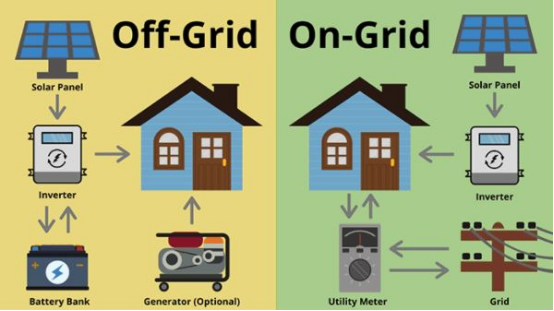
2. What batteries are best for off-grid?
An off-grid system consists of solar panels a solar battery to store and supply power, and an inverter to control the input and output of generated power and optionally a backup generator.
LiFePO4 (LFP) batteries are the best batteries for off-grid solar. They have higher charging speed and low self-discharge rate, longer life cycle, safer and more environmentally friendly.
3. Is 12v or 24v better for off-grid solar battery?
If your energy needs are around 1,000 to 5,000 watts, choose a 24-volt system. If you want a smaller DIY system for your RV, van or small house, go with a 12-volt system.
4. How many batteries do I need for off-grid lithium battery?
If you want to keep the power on when the grid is off, you usually only need one solar cell. If you want to go completely off the grid, you need more storage capacity, a 10.24 kW Diypow powerwall, or 8-12 12V Diypow lithium batteries.
5. How long do off-grid batteries last?
On average, solar cells can last from 5 to 25 years. Lithium-ion cells are the most common type of solar cell, with a life span of up to 15 years. Factors that affect the life of a solar cell are the type of cell, installation, depth of discharge, cycle life, environment and maintenance.
6. What voltage are off-grid batteries?
Most people are beginning to explore off-grid solar systems with a system voltage of 12 volts. 12 volts is very common, which makes things easy because there are many options for batteries, inverters, chargers, and devices such as light bulbs that can use 12 volts of DC power.
7. How do grid batteries work?
A battery energy storage system (BESS) is an electrochemical device that charges (or collects energy) from the grid or power plant and then releases the energy at a later time in order to provide electricity or other grid services when needed.
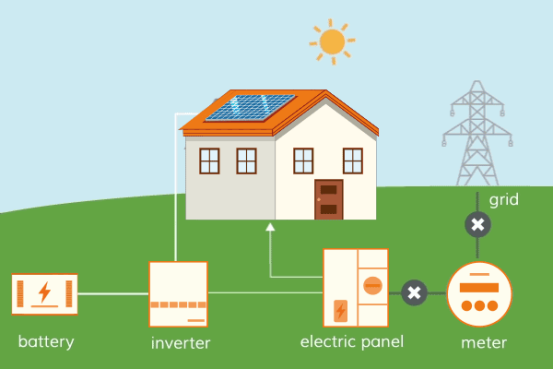
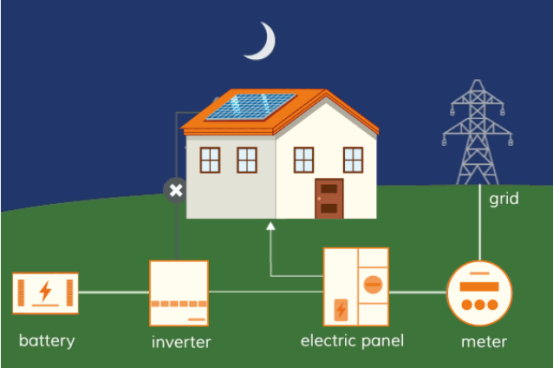
8. How big should my off-grid battery be?
In a typical off-grid cabin application, you will have a 24 or 48-volt battery pack that ranges from 600 to 800 amp hours. In larger systems, a Diypow powerwall battery can reach 10.24 kWh.
9. What is the best off-grid battery for cold weather?
LiFePO4 or LFP batteries are suitable for almost all conditions (temperature range from -4 °F to 140 °F (-20 °C to 60 °C)). LiFePO4 batteries are an excellent alternative for continuous, reliable power for off-grid solar, RV and camper owners who live or travel in extreme cold climates.
10. What type of inverter is off-grid?
Off-grid Solar Inverter - Off-grid solar inverters are very popular and they come with backup power. Off-grid solar inverters work independently of the grid. Most household appliances such as fans, coolers, TVs, air conditioners, water pumps, etc.
11. Can batteries charge from the grid?
Some batteries can be charged with electricity from the grid during off-peak hours (usually at night), when electricity is cheaper than during the day. The energy stored in the solar cell system will be used whenever the home's energy use exceeds the level produced by the solar panels.
12. What is the best power source for off-grid home?
Solar. This is definitely a favorite for off-grid power systems and for a good reason. Solar panels use photovoltaic cells to harness the sun's energy and convert it to direct current, which an inverter can then convert to alternating current.










